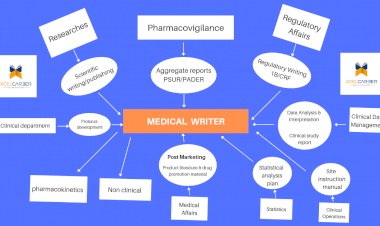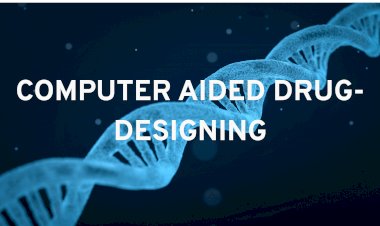HOW TO WRITE AN IMPACTFUL THESIS OR TRAINING REPORT: A STEP-BY-STEP APPROACH
Crafting a thesis or training report demands meticulous organization, clarity, and precision. A well-structured document not only enhances readability but also effectively communicates research insights or professional learning experiences. By following a systematic approach—defining objectives, structuring content, refining methodology, analyzing results, and presenting conclusions—you can create an impactful and cohesive report that reflects your expertise and dedication.

Whether you are preparing a thesis for an academic degree or compiling a training report for professional documentation, structuring your work effectively is essential. A well-organized document enhances readability, ensures clarity, and showcases your analytical and research skills. Here's a step-by-step guide to crafting a compelling thesis or training report.
1. Understanding the Purpose
Before diving into writing, define the objective of your document.
- Thesis: A thesis presents original research, exploring a hypothesis or a topic in depth, backed by scientific evidence. It requires critical analysis, experimentation, or theoretical discussions.
- Training Report: This documents a learning experience, outlining methods, observations, and practical applications during a training period. It focuses on hands-on experiences and skill development.
2. Structuring the Document
A well-structured thesis or training report generally follows this sequence:
Title Page
- Title of the report/thesis
- Your name, institution, department, and date
- Supervisors or mentors, if applicable
- Any additional institutional or industry-related logos (for official training reports)
Abstract (For Theses)
A concise summary (150–250 words) explaining the research purpose, methodology, key findings, and conclusions. The abstract should include:
- A brief background of the study
- Research objectives
- Methodology used
- Summary of findings
- Conclusions and significance of the research
Acknowledgments
Recognizing contributors, mentors, or institutions that supported your work. Express gratitude to individuals who helped in research, training, or guidance.
Table of Contents
A list of sections and subsections with page numbers for easy navigation. This helps readers quickly locate different parts of the document.
List of Figures and Tables (If Applicable)
- Numbered figures, tables, and illustrations used in the document
- Their respective page numbers for easy reference
Introduction
The introduction sets the stage for your work.
- Define the research problem or training objectives.
- Provide background information, including historical and theoretical contexts.
- Outline the significance of the study/training in practical applications or academic advancements.
- State the aims and scope of the document.
- Identify key challenges or gaps your work addresses.
Literature Review (For Theses)
- Review previous research and studies related to your topic.
- Discuss relevant theories, frameworks, and methodologies.
- Identify gaps in existing knowledge and highlight how your research fills them.
- Provide citations from credible sources using the appropriate reference style (APA, MLA, Harvard, etc.).
Methodology
- Thesis: Explain the research methods, experimental design, materials, and analytical techniques used. Clearly define variables, data collection techniques, and statistical or qualitative analysis procedures.
- Training Report: Describe the training process, modules covered, resources used, tools learned, and methods applied. Include real-world applications, practical exercises, and key learning experiences.
Results & Discussion
- Thesis:
- Present findings using charts, graphs, tables, and statistical analysis.
- Interpret results critically, comparing them with existing literature.
- Discuss implications, errors, and improvements for future research.
- Training Report:
- Summarize observations during training, lessons learned, and challenges faced.
- Analyze skills developed, knowledge acquired, and potential industry applications.
Conclusion
Summarize the key outcomes, implications, and recommendations for future research or practice. Include:
- A recap of key points and findings
- How the research/training contributes to the field
- Suggestions for future improvements and applications
References/Bibliography
Cite sources following a standard format. Academic institutions often require formal citation styles such as:
- APA (American Psychological Association)
- MLA (Modern Language Association)
- Harvard Referencing
- IEEE (Institute of Electrical and Electronics Engineers, for technical papers)
Appendices (If required)
Include supplementary materials like:
- Raw data from experiments or surveys
- Training schedules and protocols
- Images, charts, reports, or additional technical documentation
3. Writing & Formatting Tips
- Be Clear & Concise: Avoid unnecessary jargon; write in an engaging, precise manner.
- Maintain Logical Flow: Each section should connect smoothly to the next.
- Use Visuals: Charts, graphs, and tables can enhance comprehension and engagement.
- Proofread & Edit: Ensure grammatical accuracy, factual precision, and consistency in formatting.
- Follow Institutional Guidelines: Adhere to formatting requirements such as font size, spacing, and citation style.
- Use Professional Language: Maintain an objective and formal tone, especially in academic writing.
4. Review & Feedback
Before submitting, seek feedback from mentors or peers. Constructive critique improves coherence and quality.
- Self-Review: Read the document multiple times and check for errors.
- Peer Review: Get opinions from colleagues or academic supervisors.
- Software Tools: Use Grammarly or other editing tools to refine grammar and clarity.
IBRI Noida: Expert Thesis Writing Services
For students and researchers seeking professional guidance in thesis writing, Indian Biological Sciences and Research Institute (IBRI) Noida offers comprehensive support. Their services include research proposal development, literature review assistance, synopsis writing, dissertation structuring, and scientific paper publication. With a strong focus on pharmaceutical sciences, biotechnology, bioinformatics, and regulatory affairs, IBRI ensures that scholars receive expert mentorship and structured guidance throughout their academic journey. Their team of experienced professionals helps refine content, enhance clarity, and adhere to institutional formatting standards, making thesis writing a seamless process.
Final Thoughts
Writing a thesis or training report requires diligence, clarity, and structure. By following this framework, you can create a well-organized and impactful document that effectively communicates your findings and learning experience.
For researchers seeking professional assistance, Indian Biological Sciences and Research Institute (IBRI), Noida provides expert guidance. Their services include research proposal development, literature review support, research paper writing and dissertation structuring, ensuring scholars receive high-quality mentorship throughout their academic journey.


























